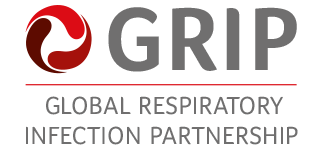Executive Summary
Executive Summary
Antibiotics and Sore Throat
Report from the Global Respiratory
Infection Partnership
Meeting held 11th June 2012, Royal
College of Physicians, London
- Antibiotic resistance is an escalating global problem that poses a significant threat to future health
- A co-ordinated international, multi-pronged, multiple-stakeholder approach is essential to effectively change healthcare professional and patient behaviour to contain and combat antibiotic resistance
- Inappropriate antibiotic use in upper respiratory tract infections, such as sore throat, cough and common cold, is common in many countries and is a contributory factor to antibiotic resistance
- Healthcare professionals, particularly primary care physicians, are believed to succumb to patient pressure to prescribe antibiotics for upper respiratory tract infections
- However, the reality is that many patients simply seek symptomatic relief and reassurance
- Antibiotics are ineffective in the majority of sore throats, which are viral in origin; even those caused by bacterial infections are usually self-limiting
- General practitioners are the key healthcare professional in ensuring rational antibiotic use in sore throat and other upper respiratory infections
- While guidelines on rational antibiotic use exist at national and international level, these are often not well implemented
- Many of the guidelines available have been initiated in smaller, developed countries and there is a need for guidelines that reflect the complexities of larger, developing countries, such as Brazil and India
- There is a need for improved healthcare professional education on the diagnosis (particularly in children), antibiotic treatment and symptomatic management of sore throat as well as the development of communication skills to advise patients on appropriate use of antibiotics
- In countries where there is antibiotic accessibility through pharmacies, despite being prohibited for sale without a prescription, the enforcement of legal or fiscal measures as a deterrent would be of value
- A sustained approach is required for the public, patients – and parents seeking treatment for children – to empower them, build health literacy and promote shared decision making, with the support of healthcare professionals, on the appropriate use of antibiotics. Education on using antibiotics wisely can be part of the school curriculum
- In conclusion, a multi-faceted framework for a non-antibiotic, symptomatic sore throat management strategy for healthcare professionals and patients needs to be developed that can be adapted at country level to reflect local behaviours, cultures and healthcare provision systems
